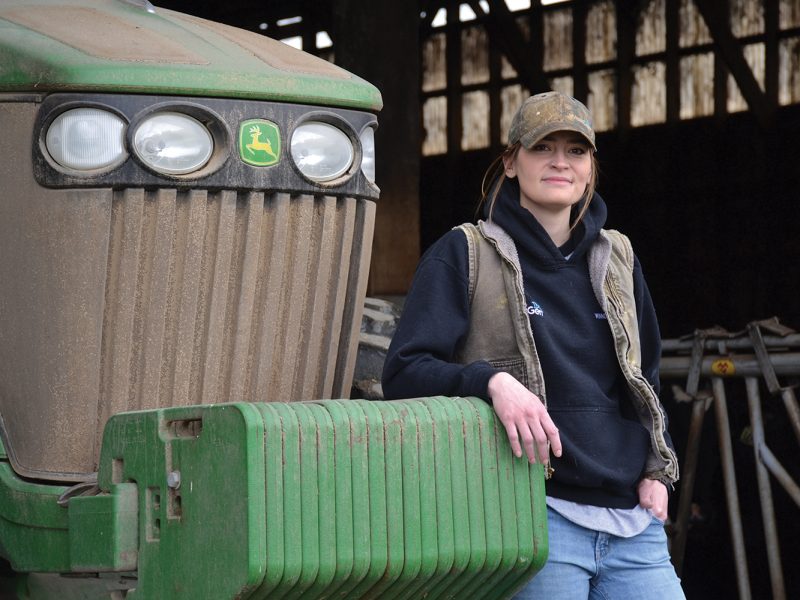SURREY – Always hotly debated in agricultural circles, the issue of foreign ownership of Canadian farmland was on the agenda at the Canadian Federation of Agriculture’s annual general meeting in Ottawa, February 25-26.
A resolution brought forward by the BC Agriculture Council delegation, including four members of BC Young Farmers, called on the CFA to advocate for Ottawa to “amend the Investment Canada Act to classify agricultural land as a critical resource requiring review of foreign purchases to ensure they align with Canada’s food security, sustainability and rural development goals.”
The Investment Canada Act (ICA) allows the federal government to screen foreign investments to ensure they benefit Canada’s economy and do not endanger national security.
Ottawa has used its power under this act in the past, notably in 2010 when Australia-based BHP Billiton was blocked from a bid for the Potash Corporation of Saskatchewan. Amending the ICA to classify farmland as a critical resource would allow for similar investment screening measures in Canada’s agricultural sector.
BC Young Farmers chair Rebecca Senicar, a third-generation dairy producer in Surrey, says the campaign to regulate foreign ownership of farmland is tied into a broader need to protect Canadian agricultural land from speculation and non-agricultural development.
“Agricultural land across Canada is really under unprecedented pressure at the moment, and we are seeing our farmland increasingly becoming a target for housing developments, and different industrial and big energy projects, and for recreational use,” says Senicar.
As a young farmer herself, Senicar is particularly concerned with how the loss of agricultural land to development is reducing the stock of available farmland and driving up prices for young Canadians seeking to earn a living in farming.
“This creates big barriers, particularly for new entrants who want to enter into the industry and produce food,” she says.
Currently, different provinces have widely varying regulations on foreign farmland purchases. In Saskatchewan, non-Canadians are prohibited from acquiring more than 10 acres of farmland without a specific exemption. Manitoba places a 40-acre limit on non-Canadian buyers “to limit speculation and support the development of strong rural communities”.
BC is among the provinces, including Ontario, which currently has no restrictions on farmland sales to non-Canadians. There are no good estimates of the rate of foreign ownership in BC’s agricultural sector, as the province does not provide detailed public records on the matter.
For Senicar, this patchwork of rules is insufficient.
“The assortment of provincial policies and approaches are honestly moderate to weak, and frankly not enough,” she says.
Kevin Boon, general manager of the BC Cattlemen’s Association, argues that tighter regulation of foreign ownership is needed to limit the degree to which farmland is used as a financial investment, especially in areas like the Lower Mainland where prime agricultural land is also a lucrative real estate asset.
“When we haven’t got foreign ownership rules, it will drive the price of land up, because most of them are buying on speculation,” says Boon.
Even when foreign-owned agricultural land is being farmed, Boon explains that this can still suck money out of Canada’s economy.
“They’re still generating food, they’re still part of the economy, but any profits would go to the mother company or to whoever the ownership is,” he says.
Boon urges consideration of the potential long-term consequences of foreign ownership on Canada’s food security in a world where countries with rapidly expanding populations may have an interest in buying Canadian farmland to supply their citizens with food without having to trade for it.
“Let’s go buy in Canada, there’s land there, let’s produce it there, but we’re going to bring that food back home,” he says, characterizing the attitude.
One of 18 resolutions passed at the Ottawa meeting, the foreign ownership resolution is a step toward ensuring that Canadian rules and regulations protect Canada’s food security and the viability of our agricultural sector.
“It’s a matter of, let’s make sure that we are protecting ourselves in the future,” Boon says.
The foreign ownership resolution will inform the CFA’s advocacy priorities in 2025.


 Okanagan drives increase in land values
Okanagan drives increase in land values